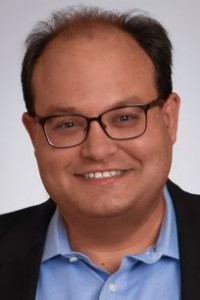I’m thrilled to say that Dr. Ivan Oransky is now VP and editorial director of MedPage Today. From the announcement in Crain’s New York:
“Dr. Oransky, previously on the editorial staff at Scientific American and The Scientist and most recently executive editor of Reuters Health, will develop strategies for new MedPage Today content.”
We’ve often cited @IvanOransky‘s work here – search “Oransky” on this site for all the hits.
For participatory medicine his most popular work has been his 2010 creation with Adam Marcus of the Retraction Watch blog, which monitors how editors manage the retraction of scientific papers that contain errors or malfeasance (usually described with euphemisms like “administrative errors,” or “Gee, I accidentally included data or text from a different paper. How did THAT happen??” or “Oops, I accidentally edited that graph.”)
Scan the headlines on RetractionWatch to see what I mean. The peer review process is supposed to catch such things, and people say it usually does (only a tiny number of papers are retracted), but the posts on that site are eye-openers. As the site’s tagline says: “Tracking retractions as a window into the scientific process.”
Here’s the podcast of Ivan on NPR’s Science Friday two years ago, on the blog’s first birthday:
If Science Takes A Wrong Turn, Who Rights It?
“Science is often idealized as a self-correcting system. But how often–and how quickly–is bad science set straight? Ira Flatow and guests discuss recent cases of scientific fraud that have led to retractions of journal studies, and whether human study volunteers have been harmed by bogus science.”
e-Patient Impact:
From the very beginning our Journal of Participatory Medicine has talked about the limitations of peer review, sometimes in strong terms. Until the system changes, we need to understand those limitations. (Here’s a search there for peer review – see the earliest articles in our initial issue, 2009.)
This is important work for participatory medicine because nobody can possibly make the best decisions if they’re fed bad information, so medicine needs an independent process that keeps an eye on things.
Congrats to Ivan – here’s to the future of reliable, well-vetted information, to empower and enable better medicine!







Recent Comments